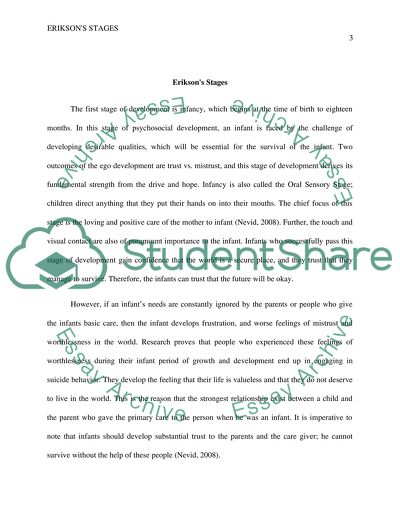Cite this document
(“Erikson's Stages Essay Example | Topics and Well Written Essays - 1500 words”, n.d.)
Retrieved from https://studentshare.org/psychology/1455316-erikson-s-stages
Retrieved from https://studentshare.org/psychology/1455316-erikson-s-stages
(Erikson'S Stages Essay Example | Topics and Well Written Essays - 1500 Words)
https://studentshare.org/psychology/1455316-erikson-s-stages.
https://studentshare.org/psychology/1455316-erikson-s-stages.
“Erikson'S Stages Essay Example | Topics and Well Written Essays - 1500 Words”, n.d. https://studentshare.org/psychology/1455316-erikson-s-stages.


